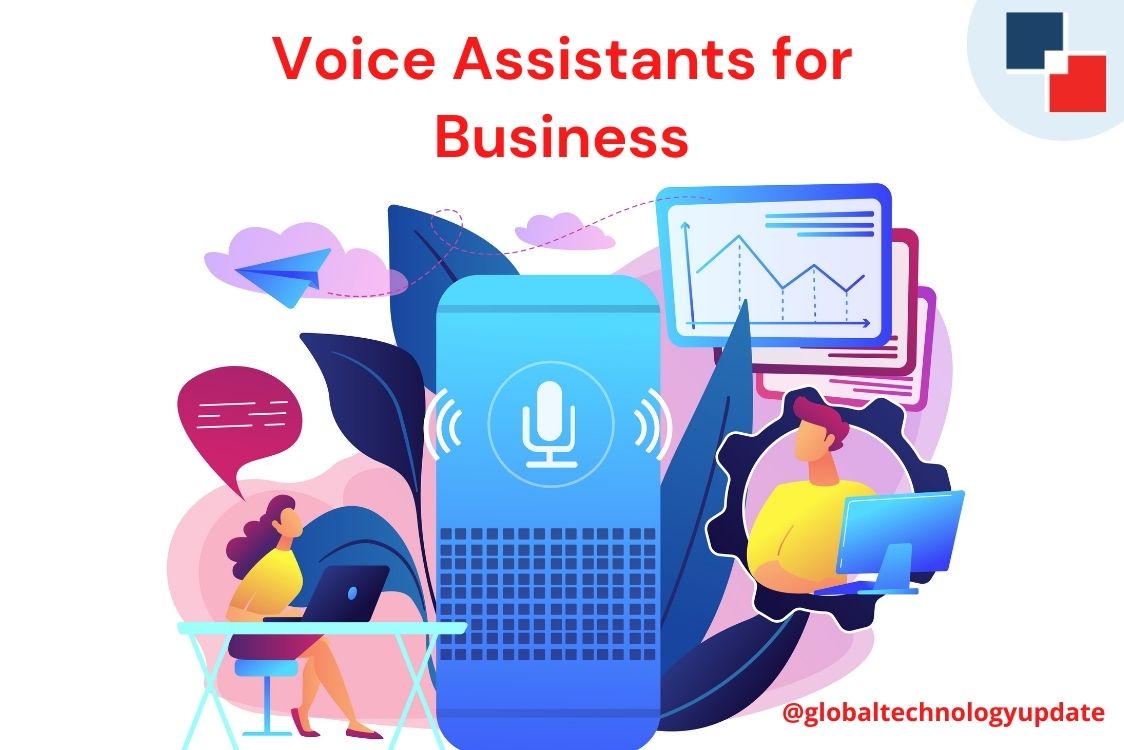Voice assistants are becoming increasingly popular in homes and businesses. They’re used to control smart home appliances, provide information, and even perform tasks on behalf of users. In this article, we’ll discuss several ways voice assistants will change your business.
Virtual voice assistants like Siri, Alexa, and Cortana are becoming more popular every year. The Pew Study recently found that at least 46% of Americans use digital voice assistants to do different things. Voice assistant technology is increasingly becoming a key aspect of a successful business strategy.
What is a Voice Assistant?
Voice assistant, also known as intelligent personal assistants or linked speakers, are new sorts of devices based on natural language speech recognition that is promoted by Apple, Amazon, and Google. They allow the user to do a search using a voice command and get information via voice synthesis.
The global speech recognition industry is expected to grow from $10.7 billion in 2020 to $27.16 billion in 2025. Google reports that approximately 27% of the worldwide online population uses voice search on mobile devices.
With the increasing popularity of Alexa and Siri, voice assistants have changed how people interact with technology and brands. As a result, Voice assistants are currently available in cars, household appliances, smartphones, apps, and smart speakers.
Which Voice Assistant is best?
There are dozens of smart speakers on the market, and choosing the ideal one is becoming increasingly difficult. Initially, you must determine which voice assistant you prefer. Three virtual assistants are worth using: Amazon’s Alexa, Google Assistant, and Apple’s Siri. Each has advantages and disadvantages.
Currently, We are discussing the best voice assistants, so you can choose a better one for you.
1. Amazon Alexa: Best for device compatibility
The device allows users to engage via voice, play music, set alarms, create to-do lists, stream podcasts, deliver weather information, and even place Amazon orders. It can also be used to control other smart devices via the automation hub.
Amazon’s virtual assistant is a female voice that is always available to assist you with a variety of tasks. She has been integrated into several Amazon goods and is beginning to appear on third-party devices, such as GE lighting and the Sonos One speaker.
Advantages of Amazon Alexa:
Intelligent
Smart home support
Easy shopping
Disadvantages of Alexa:
Inaccurate answers
No mobile experience
2. Google Assistant
Google Assistant is Google’s version of Alexa, which is similar to Amazon’s Alexa. It has made amazing progress since its inception in 2016 and is the most dynamic and advanced assistant compared to other gadgets.
It provides voice commands, speech search, and voice-activated device control, allowing you to do several tasks after saying “OK Google” or “Hey Google” to activate it.
Advantages of Google Assistant:
Accuracy
Expanding the range of capabilities
Google compatibility
3. Apple Siri: The most popular mobile voice assistant
Apple’s voice-activated personal assistant is available on iOS devices, Known as “Siri”. Siri launched on the iPhone 4S and is now accessible on the iPad, iPod touch, Apple Watch, HomePod, and Mac.
Siri is designed to make it easy for you to talk to your iPhone, Apple Watch, iPad, and iPod Touch. Also, You can ask her questions, tell her to show you something or give her commands for her to carry out on your behalf.
Advantages of Apple Siri:
Apple integration
HomeKit compatibility
Language support
Disadvantages of Apple Siri:
Limited voice applications
Limited device control
How voice assistants can transform your business?
Many people have started using voice assistants at home. However, not many people have thought about how they might be useful in the workplace. Tech experts say voice assistants can boost business efficiency.
1. Improve Communication
Voice assistants use a technology called natural language processing (NLP), which uses artificial intelligence (AI) and machine learning to take a spoken phrase and turn it into written text. This feature, especially as it improves, will help business professionals collaborate and communicate more efficiently.
Future teams are growing increasingly remote and global, but the majority of communication is still done through Chat groups and other messengers. Voice assistants can help multilingual teams communicate more effectively and quickly.
2. Boost Productivity
Voice assistants may appear limited at present, but they will eventually grow to function as virtual coworkers. In this role, they will work alongside humans and take over repetitive tasks, which will free up people to work on more important projects.
In other words, Siri and her peers reflect a larger movement than simply executing voice-command tasks. These personal assistants are the future of human-computer interaction (HCI).
3. Data Analytics
Data analysis could be made much easier by using voice assistants like Cortana and Siri. Using voice commands to build analytical queries across big data warehouses, and slicing data by date ranges or departments — all using voice commands — would be a significant workplace breakthrough.
Analysts know what they want to see and how they want to see it, but they need an intermediary to turn their English into a graphic. Data-driven decision-making will be easier to do if it is easier to find the right information. This could help companies make smart decisions in the market.
4. Ease of access
Voice assistants could help employees who struggle with specific technologies complete their everyday tasks. Also, opens them up to new tasks and roles in their existing workplace.
Voice assistants can act as your executive assistant by organizing your schedule, making phone calls, sending follow-up messages, ordering office supplies, and automating other activities. You not only save time and money, but you also increase productivity by allowing your staff to focus on higher-priority tasks that need critical thought.
5. Manage Meetings
Voice assistants can be extremely useful in organizing meetings, determining scheduling issues, and presenting potential solutions on the schedule. It can also help you connect to a meeting from a meeting room by speaking a command instead of using the onscreen menu or a keyboard to choose an option.
Conclusion
Voice technologies can help your business no matter what industry you are in. In addition to improving client service, voice technologies enable greater process automation, especially when combined with machine learning.




